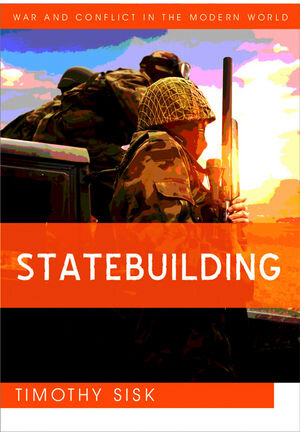
„A thorough examination of why statebuilding is essential to peacebuilding, and a richly documented case for why the international community should assist statebuilding in fragile states.“
International Affairs
„Readers looking for an interesting and accessible account of contemporary practice and the debates which surround it will be very satisfied.“
LSE Review of Books
"A comprehensive account of the evolution of the international response to civil war and the challenge of post-conflict peacebuilding. An important challenge to much contemporary policy, Statebuilding will quickly take a place among the 'must read' accounts of contemporary statebuilding.„
Bruce Jones, Brookings and the NYU Center on International Cooperation; senior advisor to the WDR 2011 on Conflict, Security and Development
“Sisk's book is the best guide to 'statebuilding' I know. It provides conceptual clarity and a framework for international action. It is written with clear-headed commitment and a seriousness of purpose that leaves the reader in no doubt that we are dealing with one of the key challenges of the modern era.„
Khalid Koser, Geneva Centre for Security Policy
“A lucid and highly accessible defense of how the building of states after civil war by international intervention is essential to peace. It is a very fine culmination of a research agenda on liberal internationalism begun a decade ago. Teachers will find Statebuilding extremely comprehensive on the current orthodoxy."
Susan Woodward, City University of New York
Statebuilding
von Timothy SiskIn this book, Timothy Sisk explores international efforts to helpthe world's most fragile post-civil war countries today buildviable states that can provide for security and deliver the basicservices essential for development. Tracing the historical roots ofstatebuilding to the present day, he demonstrates how the UnitedNations, leading powers, and well-meaning donors have engaged instatebuilding as a strategic approach to peacebuilding after war. Their efforts are informed by three key objectives: to enhancesecurity by preventing war recurrence and fostering community andhuman security; to promote development through state provision ofessential services such as water, sanitation, and education; toenhance human rights and democracy, reflecting the liberalinternational order that reaffirms the principles of democracy andhuman rights, .
Improving governance, alongside the state's ability to integratesocial differences and manage conflicts over resources, identity, and national priorities, is essential for long-term peace. Whetherthe global statebuilding enterprise can succeed in creating a worldof peaceful, well-governed, development-focused states is unclear. But the book concludes with a road map toward a better globalregime to enable peacebuilding and development-orientedstatebuilding into the 21st century.




